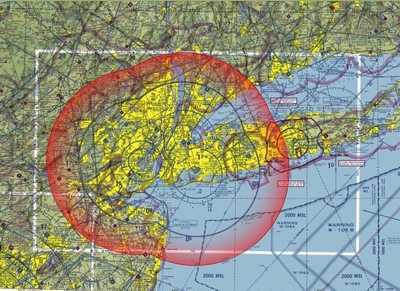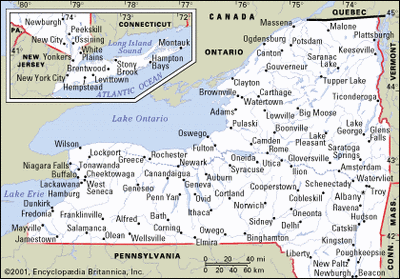I "Heart" New York?
"So what else is new?" may be the response from jaded passengers
who fly into, out of, or over any of New York's three major
airports to the findings that the Big Apple leads the nation in
terms of flight delays or cancellations.

Passengers at those airports had more than a one in three chance
that their flight was delayed or even canceled, leading the nation
during the first quarter of 2007.
A full 38 percent of all flights at Kennedy, LaGuardia, and
Newark Liberty were either late or canceled, reported the
Associated Press.
And as one familiar with the "domino effect," (no, not the
pizza) what impacts one, nay, three major airports, effects
airlines nationwide.
"This impacts the entire country," agreed JetBlue chief
executive Dave Barger. As goes Kennedy, he said, so goes the
nation.
Working On The Problem
 Okay, we've established
that this is a consequential problem... but how can it be fixed?
Government agencies and aviation experts will be working on the
problem over the ensuing months, with plans that include the
establishment of a task force to be convened by the Port Authority
of New York and New Jersey.
Okay, we've established
that this is a consequential problem... but how can it be fixed?
Government agencies and aviation experts will be working on the
problem over the ensuing months, with plans that include the
establishment of a task force to be convened by the Port Authority
of New York and New Jersey.
Experts -- and, we imagine, anyone who flies commercially
-- say the panel's job won't be easy, what with the
"uncontrollable" factors of New York's bad geography and bad
weather; storms not a problem elsewhere in the country often impede
New York flights because of its location on the eastern seaboard.
And the airports' outdated runway configurations mean fewer jets
are landing each hour than at modern facilities.
And nearly six years post 9/11, air congestion is at an all-time
high, with nearly 1.4 million flights passing through New York
airspace last year, said the FAA.
"If an airport is scheduled at maximum capacity all day, and you
have delays at any time, you can never recover from it," said R.
John Hansman, an air travel expert at MIT.
Improvements Possible
The FAA is finalizing approval of a new flight pattern for the
corridor between Delaware and Connecticut, which officials hope
will reduce delays by 200,000 hours a year. Oh, the plan faces
opposition from some communities under those routes.
The airlines and FAA are also pressing Congress to authorize a
multibillion-dollar upgrade of the nation's air traffic control
system with a high-tech replacement that would utilize
global-positioning satellites to coordinate traffic, which woud
allow aircraft to fly closer together. Unfortunately, the system
wouldn't be available everywhere until at least 2025.
And in an effort add runway options to the New York area, the
Port Authority is purchasing Stewart International Airport, 60
miles north of the city.

Talks are also under way to discuss ideas that would encourage
airlines to fly larger planes out of LaGuardia.
Airlines should also be encouraged to "schedule with integrity,"
JetBlue's Barger said, instead of cramming too many flights into
too short a time.
But don't expect the problem to be fixed anytime soon. The FAA
is predicting the country's major airports could be dealing with
more than 81 million takeoffs and landings a year by 2020, up from
about 62.5 million now.
So, in the meantime, what's a passenger to do?
As one infamous television executive was heard to say in a
motion picture, "I'm mad as hell and I'm not going to take it
anymore!"
Well, one could fly out of Islip's MacArthur Airport, where only
15.3 percent of flights were delayed during the same time period,
according to the federal Bureau of Transportation Statistics.
However MacArthur serves but 2 million passengers annually,
compared to the more than 100 million that New York City's airports
handle.
 ANN's Daily Aero-Term (04.20.24): Light Gun
ANN's Daily Aero-Term (04.20.24): Light Gun Aero-News: Quote of the Day (04.20.24)
Aero-News: Quote of the Day (04.20.24) ANN's Daily Aero-Linx (04.21.24)
ANN's Daily Aero-Linx (04.21.24) Aero-News: Quote of the Day (04.21.24)
Aero-News: Quote of the Day (04.21.24) ANN's Daily Aero-Term (04.21.24): Aircraft Conflict
ANN's Daily Aero-Term (04.21.24): Aircraft Conflict





